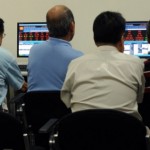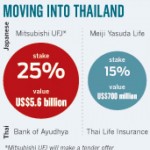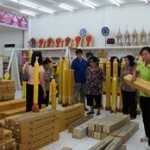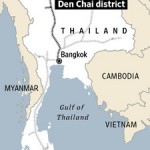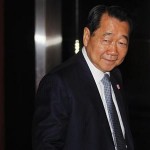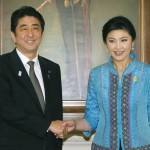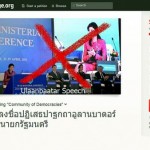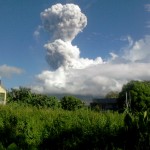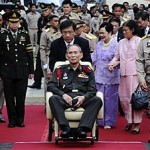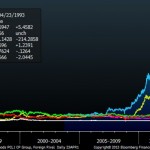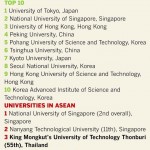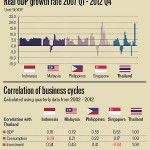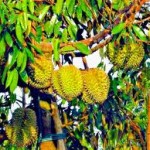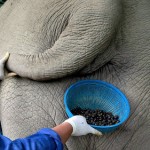3 Thai universities named among 100 best in Asia
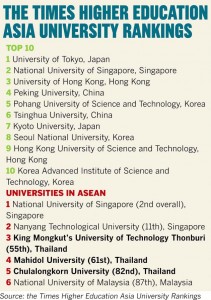
Three Thai universities have been named among the top 100 research universities in Asia by the Times Higher Education magazine.
King Mongkut’s University of Technology Thonburi (KMUTT) was ranked 55th, Mahidol University 61st and Chulalongkorn University (CU) 82nd in the first-ever Times Higher Education Asia University Rankings.
The top three were University of Tokyo, National University of Singapore (NUS) and the University of Hong Kong.
The rankings were released in London yesterday.
“King Mongkut’s has a strong score for its research impact, which explains its top place in Thailand. It also seems to have strong levels of income from industry, demonstrating its strength in knowledge transfer,” Phil Baty, editor of Times Higher Education Rankings, told The Nation.
“Mahidol’s best score is in its international outlook, so there are encouraging signs there that it is appropriately outward-facing, and keen to recruit globally and [make progress on] international collaborations,” Baty said.
“Chulalongkorn has no one area of outstanding strength, but benefits from a relatively solid performance across the indicators. What stands out about Chulalongkorn’s performance is its reasonable score for its income from industry.”
Focus on skills
KMUTT’s vice president, Assoc Prof Chaowalit Limmaneevichitr said he was glad that the university’s direction, focusing on enhancement of students’ capabilities as well as research and innovation, was in line with the ranking’s criteria, placing it in 55th place in Asia.
“KMUTT has produced effective research output that can be used for citations and also a private sector that can buy our knowledge, and has brought that knowledge to commercial production. We also try to produce graduates capable of working locally and internationally,” he said.
CU President Prof Pirom Kamolratanakul said the staff at CU, ranked 82nd in the top 100 universities in Asia, would dedicate themselves to enhancing graduates’ capabilities so they could contribute to society.
He said the university focused on outcome-based learning and encouraged its lecturers to conduct research that leads to improvements in people’s quality of life.
“I believe that more Thai universities will appear in this list of Asian universities, as every university is trying to improve students’ and lecturers’ capabilities, research, curriculum and educational technology towards internationalisation,” Pirom added.
According to Baty, the Asia rankings are based on the same trusted and established methodology as the annual Times Higher Education World University Rankings.
The Asia rankings used 13 separate performance indicators to examine each university’s strengths against all its core missions – teaching, research, knowledge transfer and international outlook. All data are collected, analysed and verified by global data provider Thomson Reuters.
“You have to be relatively strong across the board to really make the top of these tables. But the single most influential performance indicator is one of research impact: we look at how influential each university’s research output has been in pushing the boundaries of knowledge in world class research journals. Each of our top three do well there. In addition, the top three also have a strong international reputation for their research, and enjoy a strong research income and productive research output,” he said.
He advised Thai institutions that in order to place highly in these rankings, they need strong funding, whether public or private. Universities need money to pay competitive salaries to attract top academic talent from all over the world, to retain their local talent, and to build the facilities needed for world-class teaching and research, Baty said.
“The world’s leading universities also usually benefit from freedom: academic freedom for their staff to pursue ‘blue skies’ research and to truly innovate, but also institutional freedom to manage their affairs as they see fit, and to respond to a rapidly changing world,” he said.
Universities from 15 countries comprise the Asia top 100. This is out of a possible 25 countries in Asia that have representative institutions in the Thomson Reuters database.
From: http://www.nationmultimedia.com/national/3-Thai-universities-named-among-100-best-in-Asia-30203864.html













